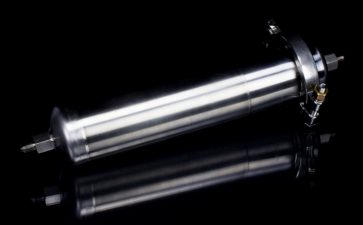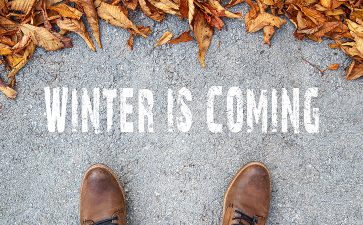Winter is Coming! Are You Ready?
I have worked in the Tire Fill Industry for more than 25 years. Each year, a Cold Weather Bulletin is distributed stating that TyrFil™ Flatproofing must be at 72° F before processing. But every year, I have seen the same old problems caused by TyrFil stored and processed at too cold of temperatures. I am going to list a few common problems and the preventive actions for you to take during the colder months, but the TyrFil™ processor is the main person that can prevent cold weather problems.
Cold Weather Preventative Maintenance Checklist
1. Order TyrFil™ earlier than usual. Our products are shipped from Cleveland, OH and Chattanooga, TN. TyrFil™ needs to be at least 72° F for processing. If you receive a tote from Cleveland, its temperature could be 32° F or below and it would take 3-4 days at 72° F for TyrFil™ to warm up to the correct processing temperature.
2. Store TOTES inside, if possible.
3. If possible, the TOTES that are hooked up to the pumping system should be on a rack or even stacked on top of a couple pallets so heat can circulate around them. Since heat rises, the floor is always the coldest area of the room.
4. Keep everything warm! Buy a THERMOMETER so you will not have to guess the temperature.
5. TIRES need to be pre-stretched. Warm tires will stretch easier. Also, warmth speeds the cure time, so keeping the tires warm before and after filling will help. One tip is to put processed tires on a pallet so they will be off of the cold floor. Another tip would be to keep tires an extra day to ensure they are cured properly to avoid flat-spotting and to obtain optimum physical properties.
6. Viscosity is a measure of a fluids resistance to flow! Temperature is the kryptonite to viscosity. The NUMBER ONE problem is BAD MIX! When you try to pump cold material, the material can get off ratio and fail to reach the physical properties that they are designed to reach, resulting in potential product failure.
7. Pumping TyrFil™ below 72° F will slow down the filling process (especially pumping through a long valve stem) because of the higher viscosity of cold material, and this will cost your company money due to the extra time it will take to process tires.
8. The thicker viscosity of cold material can add extra pressure on the seals in your pumping system and can cause them to blow which can be a costly repair.
9. If you have a Graco or 7200 pumping system, keeping the ambient temperature around 72° F helps prevent the air motor from freezing. This is caused from moisture in the air lines and when air is compressed and released quickly, it creates a cooling effect. When freezing happens, it can damage O-rings inside the air motor and result in downtime for repair.
10. If you have a Green Machine or AutoFil Machine, cold grind can slow down the filling process. Remember to keep everything warm that pertains to the filling process.
Chuck Morrison
Insides Sales & Tech Service Coordinator
[email protected]

